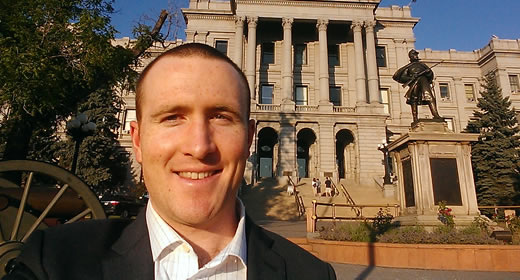
That old trope about states serving as "laboratories of democracy" has become much more real for me this summer. I am working as a research intern in the energy program at the National Conference of State Legislatures—a national, bipartisan NGO that advises state legislators and staff members on a number of pressing policy issues.
-
Review more internship field reports from Ford School students serving organizations around the world.
Before this summer, I didn't have a great understanding of the variety of approaches that our states and territories might take to solving a big problem or adopting a new technology. Take smart meters, for example. Smart meters are similar to old analog utility meters, but they can transmit the information via wireless signals to the utility company in real time, and allow homeowners to monitor and adjust their electricity usage if demand is really high. Sounds like a simple fix for greater energy efficiency, right? But you would not believe how many different bills, rules, and orders have been passed in the last few years, both supporting and opposing smart meters.
Working at the National Conference of State Legislatures has allowed me to research a small number of energy policy topics in great depth. In the first few weeks, I've taken a fairly comprehensive look at smart meters, combined heat and power system incentives, gas and oil severance taxes, and transmission line development. I hope to finish this research and publish a few articles by early August.
In terms of my living situation, Denver has been awesome. They say it's sunny 300 days a year here. While that has not been exactly true so far this summer, the shades and sunscreen have still been very necessary. I get out to the Rockies just about every weekend to go trail running or hiking. And when the weather doesn't cooperate, there's always a lot to do in Denver and Boulder.
Alexander (Sandy) Mervak came to the University of Michigan as a dual-degree MPP / MBA student after several years of working at the intersection of business, philanthropy and public policy. Previously, he served as development director for a nonprofit youth mentoring organization. He also volunteered extensively as an English tutor for refugee families, and a mentor to youth living in affordable housing. Sandy graduated from the University of Vermont with a degree in English and a minor in Environmental Studies.